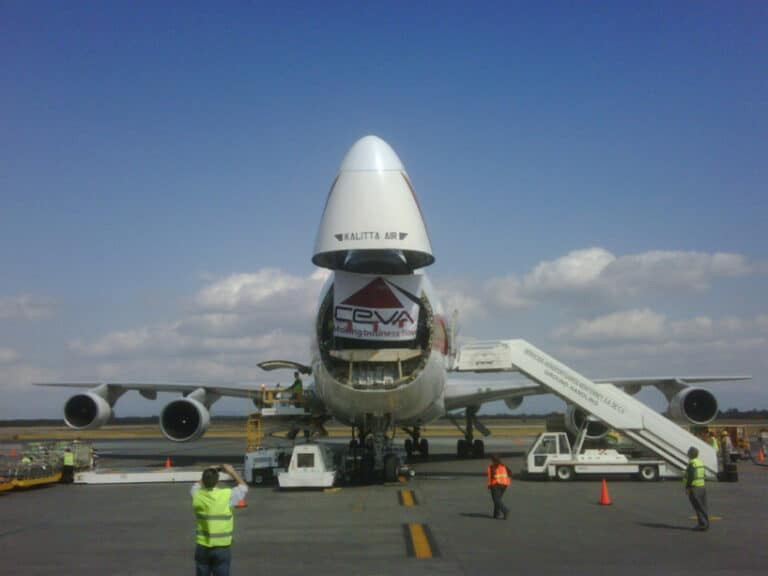CEVA Logistics—part of the CMA CGM Group—has announced a substantial expansion of its operational footprint across the country. The initiative includes the establishment of a central hub in Mumbai and the integration of Stellar Value Chain Solutions, a major Indian contract logistics firm, into its operations.
India’s airfreight throughput stood at 3.4 million metric tonnes in FY 2023–24, with government projections aiming to increase this volume to 10 million tonnes by 2030. The expansion of CEVA’s physical and operational capabilities offers much-needed capacity in warehousing, ground handling, and multimodal integration.
The acquisition of Stellar Value Chain Solutions adds 7.7 million sq ft of warehousing space across more than 70 facilities in 21 cities. Additionally, the inclusion of 8,000 employees with deep operational experience strengthens CEVA’s local footprint.
The establishment of a Mumbai-based central hub positions CEVA closer to major trade corridors, including Nhava Sheva Port and Chhatrapati Shivaji Maharaj International Airport (CSMIA)—both key nodes in India’s import–export ecosystem. With this, CEVA now plays a more prominent role in facilitating air–sea and air–road multimodal flows—a stated priority under India’s Bharatmala and Sagarmala initiatives.
Implications for efficiency
From an airfreight perspective, CEVA’s strategic buildout offers several operational and policy benefits. The integration of warehousing and distribution centres with proximity to air gateways can reduce dwell times, facilitate express shipments, and enhance cargo velocity—particularly for high-value and time-sensitive goods such as pharmaceuticals, electronics, and perishables.
“CEVA’s new capacity and geographic coverage will provide needed redundancy and route diversification across India’s secondary airports,” said Paras Rawal, CEVA’s managing director of the India subcontinent. “This directly supports India’s push to integrate tier-2 and tier-3 cities into global value chains.”
It is also expected that CEVA’s digital logistics platforms—including track-and-trace systems, warehouse management software (WMS), and automated inventory control—will be deployed across new facilities, aligning with government-led digitalisation under the Unified Logistics Interface Platform (ULIP) and the Gati Shakti masterplan.
Capacity constraints
CEVA’s expansion dovetails with India’s airfreight infrastructure bottlenecks. While metro airports such as Delhi (IGIA) and Mumbai (CSMIA) have reached near-saturation levels, regional facilities often lack adequate ground handling and warehousing infrastructure. The deployment of CEVA’s facilities across 21 cities provides much-needed decentralisation and capacity balancing.
Moreover, the company’s global sustainability roadmap—which includes the use of sustainable aviation fuels (SAF), emissions monitoring, and modal shift strategies—will be critical for meeting environmental compliance in India. As airfreight faces increasing scrutiny under ESG (environmental, social and governance) reporting frameworks, CEVA’s integrated sustainability metrics could serve as a model for other freight operators.
“Decarbonisation is a priority for global freight networks. CEVA’s logistics operations in India must now address not only cost and speed but also environmental performance,” said Rawal.
Catalyst for cargo ambitions
CEVA’s India expansion can be seen as more than a business move—it represents a strategic bet on India’s ability to become a central node in global logistics. With India’s National Air Cargo Policy aiming for a threefold increase in airfreight volumes by 2030, such investments signal international validation of the country’s logistics potential.
The broader airfreight industry stands to benefit through capacity spillovers, improved intermodal linkages, and a more competitive handling environment at major and emerging airports. However, success will depend on how well CEVA and its partners navigate regulatory compliance, infrastructure gaps, and the speed of operational integration.
“Our expanded presence enables us to better serve both international and domestic clients,” added Rawal. “As India continues its economic transformation, CEVA is committed to providing innovative supply chain solutions that enhance efficiency and reliability for businesses operating in this dynamic market.”




